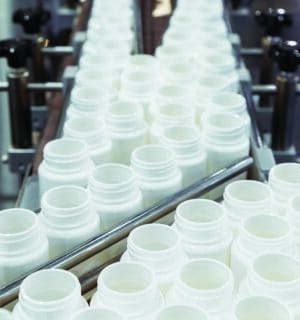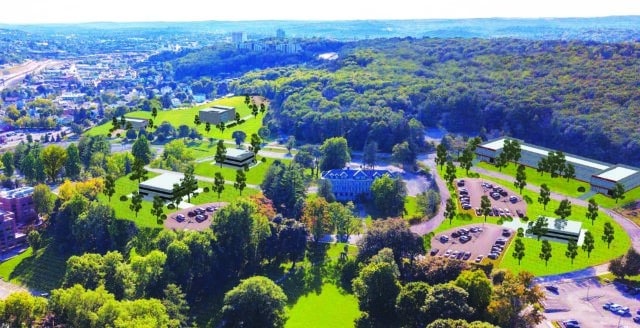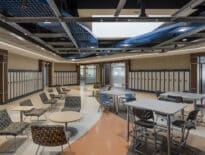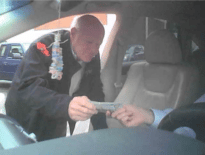
As biotechs get approval for cutting-edge drugs, they need much more space locally to grow and produce these lucrative cures. Enter: Worcester.
Developers built more than 12 million square feet of labs in the past decade to satisfy life science companies’ demand for early-stage research space in Massachusetts.
As biotech companies obtain FDA approvals for their drug treatments and bring products to market, Massachusetts hasn’t kept pace in the growth of its advanced manufacturing space to enable them to grow in their backyards. Now a former state hospital property in Worcester is making a bid to put central Massachusetts on the map as an affordable option.
WuXi Biologics, a Chinese contract pharmaceutical manufacturer with offices in Cambridge’s Kendall Square, is in negotiations to acquire the first of eight development pads that are approved for a combined 530,000 square feet at The Reactory, a 46-acre site.
“They wanted access to the colleges and university workforce here,” said Craig Blais, CEO of the Worcester Business Development Corp. “They’re talking about 150 employees, and they need to hire people from the vocational technical high school level all the way up to Ph.Ds at [Worcester Polytechnic Institute] and UMass, so it’s quite a range.”
State economic development officials steered WuXi Biologics toward Worcester as Massachusetts competed with Pennsylvania for its U.S. manufacturing facility. WuXi estimates project costs at $60 million and is in negotiations with the city of Worcester on a tax increment financing agreement, Blais said.
Abandoned State Hospital to Biotech Park
The Reactory is part of Worcester’s strategy to provide life science companies with real estate options in all stages of their business cycle, from early stage research to commercialization and manufacturing. City officials are promising fast-track permitting including by-right approval of biomanufacturing with 100-foot building heights at the Reactory.

The 46-acre Reactory at the former Worcester State Hospital property offers eight building sites for biomanufacturing including a potential $60 million contract manufacturing facility by WuXi Biologics. Image courtesy of the Worcester Business Development Corp.
The 44-acre state hospital property closed in 1991 and was offered up for sale as part of Gov. Charlie Baker’s surplus property initiative in 2016. Worcester Business Development Corp., a nonprofit formed in 1965 to spur industrial park development, was one of two respondents along with MassDevelopment.
WBDC’s bid was supported by the city of Worcester and the Worcester Regional Chamber of Commerce, positioning itself as having the closest ties to the local industry.
The agency bought the property in 2017 for $1.55 million and obtained city approvals for 530,000 square feet of development on 22 buildable acres. A $15 million state grant paid for demolition of the remaining structures with the exception of the Hale administration building, which is subject to Massachusetts Historical Commission protections. In December, Country Bank provided a $2.7 million loan for site preparation.
WBDC estimates completing roads and utilities to serve the entire site at $3.5 million, and the city of Worcester is considering a district improvement financing mechanism to pay the bill. Future tax revenues from development would support the bond payments.
WuXi has a purchase-and-sale agreement on one pad and an option to buy a second site, Blais said. WBDC has had preliminary discussions with companies for some of the others, he said. The council promotes affordable land acquisition prices as part of Worcester’s appeal, with estimated acquisition costs at The Reactory of $30 per buildable square foot. That puts estimated acquisition costs for all eight pads at below $16 million.
Incubators Offer Range of Space Options
Massachusetts Biomedical Initiatives is an economic development firm that operates three life science incubators spanning 25,000 square feet in Worcester, which have attracted early-stage companies from Cambridge to MetroWest and the Interstate 495 belt. Some 95 MBI graduate companies have created more than 800 jobs.

Steve Adams
“Timing for these guys is everything,” MBI CEO Jon Weaver said. “Once they get that FDA process started, it’s really critical that they have the ability to move quickly.”
To entice its members to remain in Worcester as they grow, it’s opening a 25,000-square-foot “scale-up center” at 17 Briden St. in Gateway Park with 28 dedicated suites ranging from 100 to 3,000 square feet and renting for as low as $1,000 a month. The minimum term is one year, and a third of the space has been committed ahead of April’s scheduled opening, Weaver said.
Third-party contract manufacturers such as WuXi are a logical option for companies to ramp up drug production in a timely and affordable basis, he said. The advent of smaller biomanufacturing equipment has made it more practical to develop plants in Massachusetts rather than overseas. And central Massachusetts offers lower development costs and proximity to the more than 500 life science companies in Boston and Cambridge to maintain quality controls, he said.
“Companies from Cambridge can come out and check on their manufacturing facilities in the morning and be home by lunch,” Weaver said.




 |
| 

